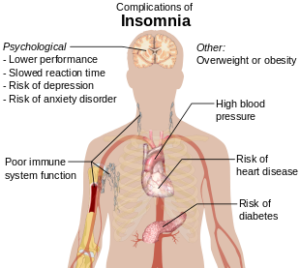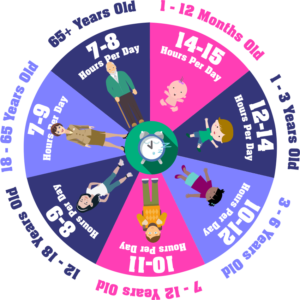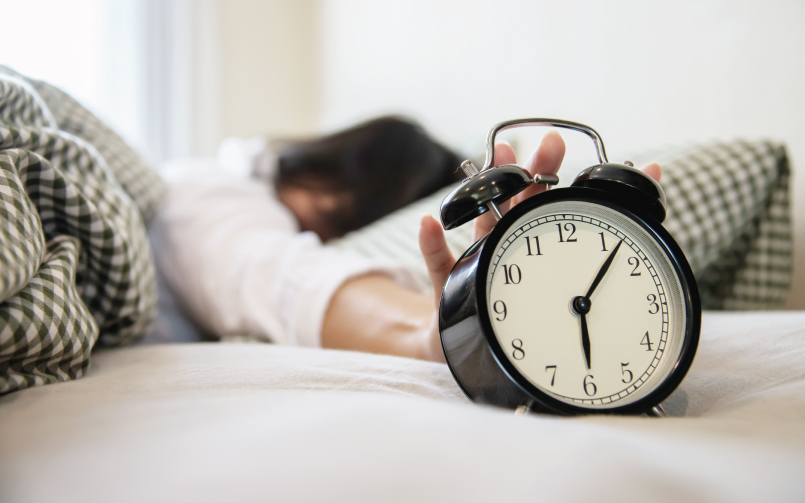Sleep is one of the most important things you can do for your health. Sleep helps to repair your muscles, release hormones and fight off inflammation. But how much sleep is enough? Experts recommend 7-9 hours of sleep per night for adults, but if you are getting less than 6 hours there are some steps you can take to get more restful sleep.
Contents
- 1 Importance Of Sleep
- 2 Signs You’re Not Getting Enough Sleep
- 3 Is 7 Hours Of Sleep Enough?
- 4 What Happens If I Don’t Sleep for 7 Hours?
- 5 Sleep Needs According To Age
- 6 Effects Lack of Sleep Have On Your Body
- 7 How to Get More Restful Sleep?
- 7.1 Set a schedule
- 7.2 Keep a sleep diary
- 7.3 Maintain a dark room
- 7.4 Use relaxation techniques
- 7.5 Don’t exercise for an hour or so before going to bed
- 7.6 Don’t use your bed for anything but sleeping
- 7.7 Do not drink caffeine after 2 pm
- 7.8 Fight Snoring with Snoremate
- 7.9 Don’t nap during the day
- 7.10 Keep the room cool at night
- 7.11 Avoid Caffeine Before Bedtime
- 8 How many hours of sleep is necessary?
- 9 Conclusion
Importance Of Sleep

Sleep is one of the most essential aspects of our lives. It plays a vital role in repairing our muscles, releasing hormones, and fighting inflammation. But what is sleep, exactly?
Sleep is a natural state of rest that allows our bodies to recover from the day’s activities. During sleep, our brains process information, consolidate memories and release hormones that regulate our bodies. We need sleep for mental and physical health, and lack of sleep can have serious consequences.
In this article, we’ll discuss the science of sleep, the effects of lack of sleep, and how to get more restful sleep. We’ll also share some tips for when you can’t fall asleep or stay asleep.
Signs You’re Not Getting Enough Sleep
If you’re not getting enough sleep, you may experience some of the following symptoms:

- Feeling tired all the time
- Difficulty focusing or concentrating
- Trouble remembering things
- Frequent headaches or migraines
- Difficulty falling or staying asleep
- Increased stress levels
- Irritability or mood swings
- Increased appetite or cravings for sugary foods
- Weight gain
If you’re experiencing any of these symptoms, it may be time to talk with your doctor. Additionally, if you have been diagnosed with a sleep disorder or even depression, a lack of sleep could exacerbate those conditions as well.
Is 7 Hours Of Sleep Enough?

There is no definitive answer to this question. Some people need more sleep than others, and different activities require different amounts of sleep. However, most people seem to function best with around 7 hours of sleep per night.
Every person’s internal clock is different, so what might be “enough sleep” for one person could be far too little or far too much for someone else. Generally speaking, 7 hours seems to be the amount of time that most people need in order to feel refreshed and focused the next day. If you find yourself sleeping more than 8 hours per night, you’re probably feeling tired and sluggish due to sleep deprivation.
If you’re finding it difficult to get 7 hours of sleep each night, turn off all electronics one hour before bedtime. This gives your brain a chance to calm down and gear up for the next day’s activities. Also, avoid caffeine close to bedtime, as this can cause you to wake up in the middle of the night and be unable to fall back asleep.
If it is hard for you to get 7 hours of sleep each night, consult your school’s guidance counselor or student health center about any possible sleep disorders that might be causing this issue.
What Happens If I Don’t Sleep for 7 Hours?
 If you don’t sleep for at least 7 hours, you may start to experience negative side effects, such as fatigue, difficulty concentrating, and moodiness. You may also find it harder to learn and remember information. Chronic sleep deprivation can also lead to serious health problems such as weight gain, high blood pressure, and even heart disease.
If you don’t sleep for at least 7 hours, you may start to experience negative side effects, such as fatigue, difficulty concentrating, and moodiness. You may also find it harder to learn and remember information. Chronic sleep deprivation can also lead to serious health problems such as weight gain, high blood pressure, and even heart disease.
If you feel exhausted during the day, write down when you are sleeping and how many hours of sleep you’re getting at night. Track your sleep for a few weeks to get an idea of whether or not you’re getting enough. If your record indicates that you could benefit from more rest, talk to your doctor about ways to improve the quality and quantity of sleep.
Sleep Needs According To Age
Younger children need more sleep than older children, but the exact amount will vary depending on the child’s growth rate and activity level. Teens need about 8.5-10 hours of shut-eye per night, while adults should aim for 7-8 hours.
If it is hard for you to get 7 hours of sleep each night, consult your school’s guidance counselor or student health center about any possible sleep disorders that might be causing this issue.
Effects Lack of Sleep Have On Your Body
Lack of sleep causes many changes in the body. Some of these include:
- Fatigue or feeling exhausted
- Memory loss
- Increased stress levels
- Headaches and migraines
- Changes in appetite, including eating more sugar
Long Term Effects of Lack of Sleep

If you’re not getting enough sleep, it could affect your physical and mental health in the following ways.
Increases risk of heart disease: Interrupted or reduced sleep can elevate stress hormones, which in turn increases blood pressure and reduces the amount of blood that can flow into the heart. This puts you at risk for heart disease.
Increases risk of depression: If you’re not getting enough sleep, it could cause a decrease in the production of feel-good chemicals like serotonin and dopamine. This can lead to feelings of depression or sadness, which can also increase your risk for heart conditions mentioned above.
Reduces brain function: A lack of sleep can affect your short-term memory and ability to learn. It can also make you less alert, which is why it’s important not to operate heavy machinery after a sleepless night.
Increases risk of obesity: Studies have shown that lack of sleep can lead to an increase in appetite, causing people to crave more sugary or starchy foods.
How to Get More Restful Sleep?
If you’re not able to fall asleep or stay asleep, there are a few things you can do. First of all, if this happens on a regular basis, you may be experiencing insomnia. Here’s what you can do about it-
Set a schedule
Going to bed and waking up at the same time every day can help your body shift into a regular sleeping pattern. Try putting yourself on a schedule – for example, if you’re usually in bed by 11 pm each night, get into bed at that time every night. You can adjust your schedule to accommodate naps during the day if needed. This will allow you to get more restful sleep.
Keep a sleep diary
Keeping track of what you do and how much you sleep can be really helpful in diagnosing the problem and figuring out how to fix it. You can use an old-fashioned paper journal or download one of many sleep diaries from the Internet. Note when you go to bed, when you get up, and what you’re doing before you go to sleep.
Maintain a dark room

Exposure to light tells your brain it’s time to wake up. If you’re trying to fall asleep, it’s important to create a dark and quiet environment. Turn off your phone or any other electronics that could emit light during the night. Make the room completely dark so that your brain is tricked into thinking it’s nighttime. Even a little bit of light can disrupt your internal clock so you don’t fall asleep when you should. Use drapes, heavy blinds, or an eye mask to cover any cracks of light coming through. You may be more sensitive to light at night because your melatonin levels are higher when it’s dark, so consider wearing an eye mask if you have to get up in the middle of the night.
Use relaxation techniques
There are several different techniques that can help you relax before bedtime and drift away into a peaceful sleep. Try meditation, deep breathing, or progressive muscle relaxation. Deep breathing or progressive muscle relaxation can relax your body and calm your mind so that you start preparing for sleep. You can do them before you go to bed, or just before you get out of bed if you’re awake in the middle of the night. Tensing and then relaxing your muscles throughout your body will send signals to your brain that it’s time for sleep.
Don’t exercise for an hour or so before going to bed
You may have heard that a workout is a great way to sleep better, but the opposite is actually true. When you exercise, your body temperature rises and falls, causing a lot of restlessness at night. That also goes for activities that raise your heart rate, such as sex.
Don’t use your bed for anything but sleeping
When you’re trying to get more restful sleep, it’s important not to use your bed as a place to watch TV or read a book. This will only associate the bed with activities that may keep you up at night. If you can’t fall asleep within an hour, get out of bed and go somewhere else to do something relaxing, like reading or listening to music.
Do not drink caffeine after 2 pm

Caffeine can stay in your system for up to eight hours, so it’s important to stop drinking caffeinated beverages by the afternoon if you plan on having a good night’s sleep.
Fight Snoring with Snoremate
Snoremate is an FDA-cleared anti-snoring mouthpiece that reduces snoring by keeping your jaw forward as you sleep, which can help ease breathing and open up your airway to reduce the noise of your snoring. It’s made from medical-grade thermoplastic, which can help you breathe easier, and it’s comfortable enough to wear every night.
Don’t nap during the day
This is another thing that can cause insomnia because you’re training your brain to be awake at night. If you feel tired right before bedtime, soothe yourself by taking a warm bath or reading a book in dim light. Avoid bright lights, including the TV, computer, and even your phone. If you feel very tired, just lie down in a quiet place with no distractions for 15 to 20 minutes.
Keep the room cool at night
The ideal temperature is between 60 and 67 degrees Fahrenheit (16-19 degrees Celsius). Your body needs to drop its core temperature by about a degree to initiate sleep.
Avoid Caffeine Before Bedtime
Don’t drink caffeine after lunchtime or other caffeinated drinks, such as cola and energy drinks, later in the day. It takes about six hours for half the caffeine you’ve consumed to leave your system. Also, avoid alcohol before bedtime. Even though it might make you feel like you’re falling asleep more quickly, alcohol actually disrupts your sleep.
How many hours of sleep is necessary?

Most people need between seven and eight hours of sleep each night. How much sleep you need may vary depending on your age, lifestyle, and health condition. If you’re not getting the recommended amount of sleep, you may start to experience negative side effects, such as fatigue, difficulty concentrating, and moodiness. Oversleeping can also be harmful and lead to health problems such as weight gain and high blood pressure.
Conclusion
The amount of sleep needed varies from person to person, but most people seem to function best with around 7 hours of sleep per night. If you’re having trouble getting this much rest each day and feel tired during the day, talk to your doctor about ways to improve the quality and quantity of your sleep. There may be a reason for it that can’t be fixed without medical intervention.
For more information, please contact MantraCare. Sleep is an essential part of our daily routine and it plays a significant role in maintaining a healthy body and mind. If you have any queries regarding Online Insomnia Counseling experienced therapists at MantraCare can help: Book a trial therapy session


